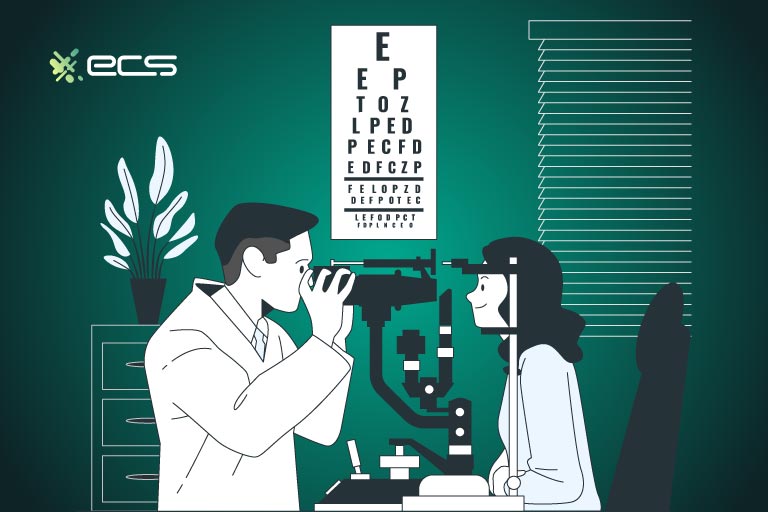Payment processing across different industries requires different tools, features, and services. What works for payment processing in a local retail setting may not be the best fit for an online eCommerce store. The same is true for medical credit card processing.
In this article, we’ll outline the steps a medical practice can use when choosing a payment processor. These tips will help you become better informed when approaching various payment processors and give you the right questions to ask when deciding.
Medical Credit Card Processing Challenges
Medical practices have unique challenges regarding billing, invoicing, and payment processing. If the practice’s healthcare payment services don’t properly address these issues, they can have substantial problems.
Lack of Efficiency
The first is not being able to process payments efficiently. A lack of efficiency can be due to a lack of processing options or tools necessary to accept payments in the way patients want to submit them. Because medical services are expensive, it is standard for most practitioners to partner with insurances ir offer payment plans or patient financing. The wide variety of payment options for medical services creates an inefficient system in need of organized and efficient structure.
Regulation Stipulations
Beyond that, there are also regulatory issues that a medical practice has to deal with that most other forms of retail payment processing do not. This includes HIPAA-compliant payment processing and PCI DSS (Payment Card Industry Data Security Standard) compliance. Though PCI compliance is required by the card brands on any business that processes card transactions, secure and HIPAA compliant processes is vital for medical practices to maintain trust and patient dignity.
—
These are just a few examples, but they illustrate that a medical practice needs to take extra care when choosing a payment processor to ensure they keep costs down and fully comply with all regulations. Not only that, a practice wants the tools to grow and adopt new payment technologies as they become available with minimal transitional stress.
Medical Credit Card Processing 101
Before choosing a healthcare payment processing solution, it’s a good idea to understand how the payment processing system works and where your practice fits into the overall payment ecosystem. Of course, you don’t need to be an expert in this area, but understanding the basic components goes a long way toward choosing the best credit card processing for a medical office.

Medical Credit Card Processing Merchant Account
As a practice, you’ll need a medical merchant account. A merchant account is an account that makes it possible for businesses to accept credit cards, debit cards, and other forms of digital payments. A merchant account is separate from your business banking account that you use to store cash to pay operating expenses for your practice.
Money accepted through your merchant account is first sent to that account, which can then be transferred to your business banking account under your medical practice’s name.
Payment Processor
You’ll need to apply to a payment processor to obtain a medical merchant account. The payment processor is sometimes the merchant acquiring bank.
The payment processor assesses your risk as a merchant based on any business history and your industry, in this case, healthcare, and then offers you an account. The account specifics can vary based on your risk factors. These include monthly transaction volumes, average ticket amounts, and other business factors.
Your payment processor is also the entity who you will deal with on a personal level. For example, if you have a question about your monthly statement or need technical assistance with a card reader, your payment processor will be your first point of contact.
For this reason, having a good relationship with your payment and credit card processor is important. You should consider them a technology partner for your practice that provides you with healthcare merchant services.
Payment processing generally works without any complications. However, issues can arise, and it’s important to reach out and find answers quickly when accepting payments. Payments are the lifeblood of any business, including a medical practice. So, you must treat this area as critical infrastructure.

Medical Merchant Account vs. Retail Merchant Account
A medical practice has different requirements for payment processing, and they need a merchant account that addresses those needs. But beyond that, the credit industry views medical practices differently than many other industries, which places them in a different category. As a result, there is an effect on medical credit card processing fee structures and other aspects.
Below, we’ll look at the key areas to be aware of when seeking out a medical merchant account.
Regulatory Compliance For Medical Payments
All merchants who accept credit or debit cards must follow certain industry standards regarding security and customer information storage. These are PCI DSS, an industry-implemented set of guidelines and best practices. These industry standards have no legal authority, but violating them can lead to a business losing its merchant account. This may also make it harder to obtain a merchant account in the future.
However, a medical practice must also deal with federal HIPAA regulations. In your practice, you are likely aware of these regulations when handling patient information. You should also apply this awareness to the storage and transmission of patient billing information. Because of this, a critical aspect of choosing a payment processor for your medical practice is ensuring a focus on security at every level.
A payment processor with medical practice experience can help you take advantage of all the various tools that are available to minimize your risk of ever falling out of compliance with industry or HIPAA regulations.
This is another reason why choosing a payment processor should be looked at as choosing a technology partner. They will play a large role in ensuring you stay compliant and have less stress regarding security and other similar patient data information issues.
Compatibility With Practice Management Software
Most businesses have existing software to manage and run their operations. Medical practices are no different, and each one uses several applications. These can be practice management programs or fully-featured EMRs and EHR applications.
Medical practices must integrate EMRs and EHR applications with its payment solutions to provide maximum efficiency that reduces costs, labor, and errors.
Suppose a payment processing solution doesn’t work seamlessly with your practice management software. In that case, you end up with errors or having to fix issues manually when billing or processing payments. This ties up your staff and prevents them from focusing on patients.
When seeking a medical merchant account, communicate with your payment processor which applications your office uses or plans to use. An experienced payment processor should understand these applications and be able to offer you the right solutions for seamline integration.

Full Medical Credit Card Processing Options For Your Practice
Most merchant accounts are for retail locations doing point-of-sale transactions, such as grocery stores. There may be others solely for e-commerce sales.
However, a medical practice generally needs to accept payments in various ways. For example, a patient may pay a copay in person but still have an outstanding balance that they later pay online or via the phone. These are all different transaction types from the same patient and for the same invoice, but each uses a different method to accept the billing information.
Another option is the ability to accept eChecks. Many patients still choose to pay via check, but processing fees for paper checks have continued to increase and can be very costly for a medical practice. When a medical practice converts those paper checks to eChecks before processing, they can save money on each transaction and receive payment faster.
Another option that is becoming more common in healthcare settings is using mobile processing solutions. These can be tablets or other mobile devices used throughout the facility to accept payments or help with onboarding. This is mostly for larger healthcare facilities or those providing mobile services outside the office. But if your practice fits these descriptions, you will also need mobile payment options.
These card capture methods are easy to implement but require support from your merchant account and payment processor. Medical practices need to ensure these methods are available and enabled within their merchant account, but not all accounts or processors offer this flexibility.
In summary, a medical practice will require support for processing HIPAA-compliant credit card payments and various other forms of digital payments:
- Point-of-sale
- Online
- Phone (virtual terminal)
- Recurring or installment payment options
- eCheck and ACH
High-Risk Medical Credit Card Processing
The credit card industry may consider certain medical payment processing high-risk. When certain transaction types are considered high-risk, there is a higher amount of fraud or chargebacks associated with those types of transactions.
Chargebacks are when a patient disputes the charges by claiming the services were not delivered, not delivered satisfactorily, or they did not authorize the transaction. Chargebacks can be costly to deal with, and they also take up time as your staff deals with the dispute.
Another factor that determines high-risk processing is the monthly transaction volumes and the average transaction amount. In medical payment processing, the average transaction amount is higher than usual, which adds to the risk factor.
Certain payment processors specialize in high-risk categories, so a medical practice should seek out processors with experience in this area.
A payment processor that doesn’t specialize in high-risk transactions may still try to approve a merchant account for a medical practice. The problem is that the medical practice may run into issues later on or even have their merchant account closed.
The possibility of account closures can be a serious problem threatening a practice’s ability to accept payments.
Certain high-risk payment processors like ECS Payments specialize in both of these areas. ECS Payments is a high-risk processor with experience directly processing for the healthcare industry.
When seeking payment processing, find a payment partner specializing in each area. This ensures your merchant account will always be in good standing, be fully compliant, and offer the lowest fees possible for your industry.

Choosing A Payment Processor
There is a list of features to look for to maximize the advantages that payment technology can bring to your practice.
Below are some key features and services you want to ensure are available when choosing your medical credit card processing provider.
Integrated Medical Credit Card Payments And Invoicing
For most medical practices, invoicing and billing are always sources of certain issues and payment delays. Paper invoices are expensive, and the response rate to the first invoice is often very low compared to other invoicing methods.
The right payment solutions can drastically reduce these costs and allow practices to get paid much faster.
The key technology for this is known as integrated payments. These allow for payment links or even pay-by-text services where patients are emailed or sent a text with a custom payment link.
The link is tied to their outstanding invoice, and they can click the link to enter their payment information or set up a payment plan if the option exists.
These are a significant cost-saver for medical practices. It reduces the need to manually run invoices as virtually the entire process can be automated. Beyond that, payments are often received much faster since payment links are generally opened and dealt with at a higher rate than paper invoices.
Medical Credit Card Processing Fee Structure That Fits Your Practice
Fees and fee structures should always be an important consideration when making a decision on a credit card processing service. All payment processing will involve fees, but how those fees are calculated and how much they are depends on the offered fee structure.
Some payment processors only offer one fee structure, and it’s usually just a flat rate. This sounds simple enough and may be appealing, but it often leads to higher fees compared to other fee structures.
Below is an outline of the most common fee structures you’ll likely be offered.
Flat Rate Pricing
Flat rate pricing is common with payment processors that offer more generic services. These can appeal to those seeking their first merchant account because the pricing is straightforward.
Essentially, they add up the costs of the interchange fee, the card fee, and then their own markup, and this is the constant rate you pay as a percentage for every transaction. There is also a base fee per transaction, which is usually around $0.10.
The rate never changes based on card type, transaction type, or volume. This means that most businesses will likely be paying more in fees with a flat rate pricing structure compared to other plans that take a little more research.
The benefit of flat rate pricing is consistency. The flat rate means businesses can more easily calculate their costs and margins with accuracy.
Interchange-Plus Pricing
This is a structure where the lowest interchange rate is used or attempted, and then a flat rate is added on top of that interchange rate. It can change depending on the card type and transaction type.
For example, a Visa card with no rewards that is captured physically at a point-of-sale can have a low interchange rate. This means you’ll pay less for this transaction than an American Express card processed over the phone.
The differences can become somewhat technical, but the basic rule is that you generally pay the best rate for the type of transaction you’re conducting.
This is usually the best pricing structure for most medical practices. It offers flexibility and competitive rates without much complication or difficulty with understanding your monthly statement.
Tiered Pricing
The other common pricing structure is known as tiered pricing. This method sets different card types in different tiers, each with its own fees. This is mostly beneficial for larger businesses or businesses with detailed knowledge of which cards their customers use.
This fee structure is too complicated for most medical practices and won’t offer lower fees or any other major benefits.
Overall, medical practices should opt for either interchange-plus pricing or flat-rate pricing. Interchange-plus may offer slightly lower fees, but some practices may enjoy the simplicity of flat rate pricing and its consistency.
In addition to these transaction fees, there is also a monthly fee to access the payment gateway, which is usually around $30
Medical Credit Card Processing Solutions For Telemedicine
Telemedicine is becoming increasingly popular with many practices, either for primary or follow-up visits. These can also be an additional revenue stream for practice.
However, payments for these types of visits can be tricky without the right tools. One method is to hand the patient off to the front desk after the telemedicine visit. There, the staff can use a virtual terminal to quickly accept a credit card payment over the phone or video chat.
A virtual terminal allows for credit and debit cards to be accepted when the patient and card are absent.
Other options can be used, such as payment links sent via the telemedicine application’s chat area. The patient can click these after the visit to complete any necessary payment.
Healthcare merchant certification is another common tool in telemedicine and helps to confirm certain healthcare services provided online.
If your practice offers telemedicine visits or is looking to expand in this area, it’s important to ensure your payment processor has the tools to support it.

Customer Support
When choosing a payment processor for your practice, you must ensure their customer support can assist and help you when you need it.
Many payment processors outsource their customer service, which causes delays in getting answers or even being unable to get answers for days or longer. A better option is when a payment processor has in-house customer support staff that is available to all their merchants.
This includes customer support for billing issues, such as questions about your monthly statements. But it also means technical support for the products and services the payment processor provides.
This is especially important when opening a new medical practice, as there will be a learning curve for the different payment types that need to be set up. Payment by credit card for a medical practice is a major channel of revenue, so downtime needs to be near zero.
Another area to consider is how you can contact customer support. Make sure the methods for contact match that of either yourself or the staff members who will be contacting support. For example, if your practice prefers phone support but the processor’s phone support hours are limited, that may not be a good fit.
Medical Credit Card Processing Gateway Options
The payment gateway is the network that connects your practice to the rest of the credit card processing ecosystem. This connection is made through the gateway’s API or Application Programming Interface.
This API will need to be integrated with your practice management software. This allows your software to automatically send or create invoices along with the help of the information stored on the gateway’s servers.
Most practice management applications work with popular gateways, but some combinations may not be optimal or may not be compatible.
Having a choice of gateways can help your payment processor and practice select the best gateway that fits your existing software and systems.
Different gateways also have different tools and features that can work for different practices. So, having a choice means you always get the best gateway features for your practice.
Third-Party Credit Card Processing Companies
Third-party processing companies or aggregate merchant providers should be avoided for medical practices. These companies don’t offer a small business a real merchant account. Instead, they allow the business to process through their merchant account.
This offers very little control for complex healthcare credit card processing and usually also results in much higher fees.
In some cases, these situations can also cause HIPAA compliance issues, so medical practices should look for other healthcare payment companies that offer a true merchant account for online payments and other merchant services.+

Applying For A Merchant Account As A Medical Practice
Once you’ve chosen a payment processor for your practice, you must apply for your merchant account. This simple process will vary slightly depending on whether you’re an existing practice or opening for the first time.
An existing practice must supply current transaction information, such as average ticket amount and monthly transaction volumes. This information will help the new payment processor find them the best rates possible.
For a new practice, these will have to be estimated. Using the most accurate estimates possible is important, as this will help the payment processor find the best rates and fee structure.
If a practice is unsure of its processing volumes, working with a payment processor such as ECS Payments with experience in the healthcare industry can help. ECS can look into your practice and determine your likely processing volumes and transaction amounts based on their experience working with similar practices.
This will allow you to get the best rates even if you’re unsure about your estimated transaction volumes before opening your practice.
Beyond that, you’ll need to supply basic information about your practice. Below is a list of common things you’ll need
- Practice name, address, and business registration
- EIN
- Business banking account information
- Personal and business credit history
- Financial statements or past processing statements
The entire process for application generally takes a few days once all of your information is submitted and confirmed. Your payment processor should keep you up to date on the application process.
It’s also important to note that switching payment processors can be relatively easy. So, if your current payment processor does not offer the services or tools you’re practicing, consider switching after searching for a better alternative. The savings and additional fees will be worth the time spent switching.
Checklist When Choosing A Payment Processor For a Medical Practice
We’ve covered a lot of information regarding choosing a payment processor, and it can be a bit overwhelming at first. So below, we’ve created a checklist for you to use when researching payment processors to narrow down your list and find the ones that will work best for your practice.
- Do they have healthcare industry experience?
- Does the payment processor specialize in high-risk processing?
- Do they have technical support staff in-house, or is it outsourced?
- How long are any contracts? Are they longer than one year?
- What fee structures do they offer, and what are the rates?
- Do they offer integrated payments, customer data storage, virtual terminals, and ACH processing?
- Are HIPAA-Compliant POS card readers or other hardware leased, or can they be purchased outright?
More Information About Medical Payment Processors
If you have more questions about payment processing for your medical practice, contact ECS Payments.
At ECS Payments, we have experience in the healthcare industry and are a leader in high-risk processing for medical practices.
Call us today to speak with one of our payment processing experts and learn how our innovative payment solutions can help your practice lower costs and improve patient experience.
